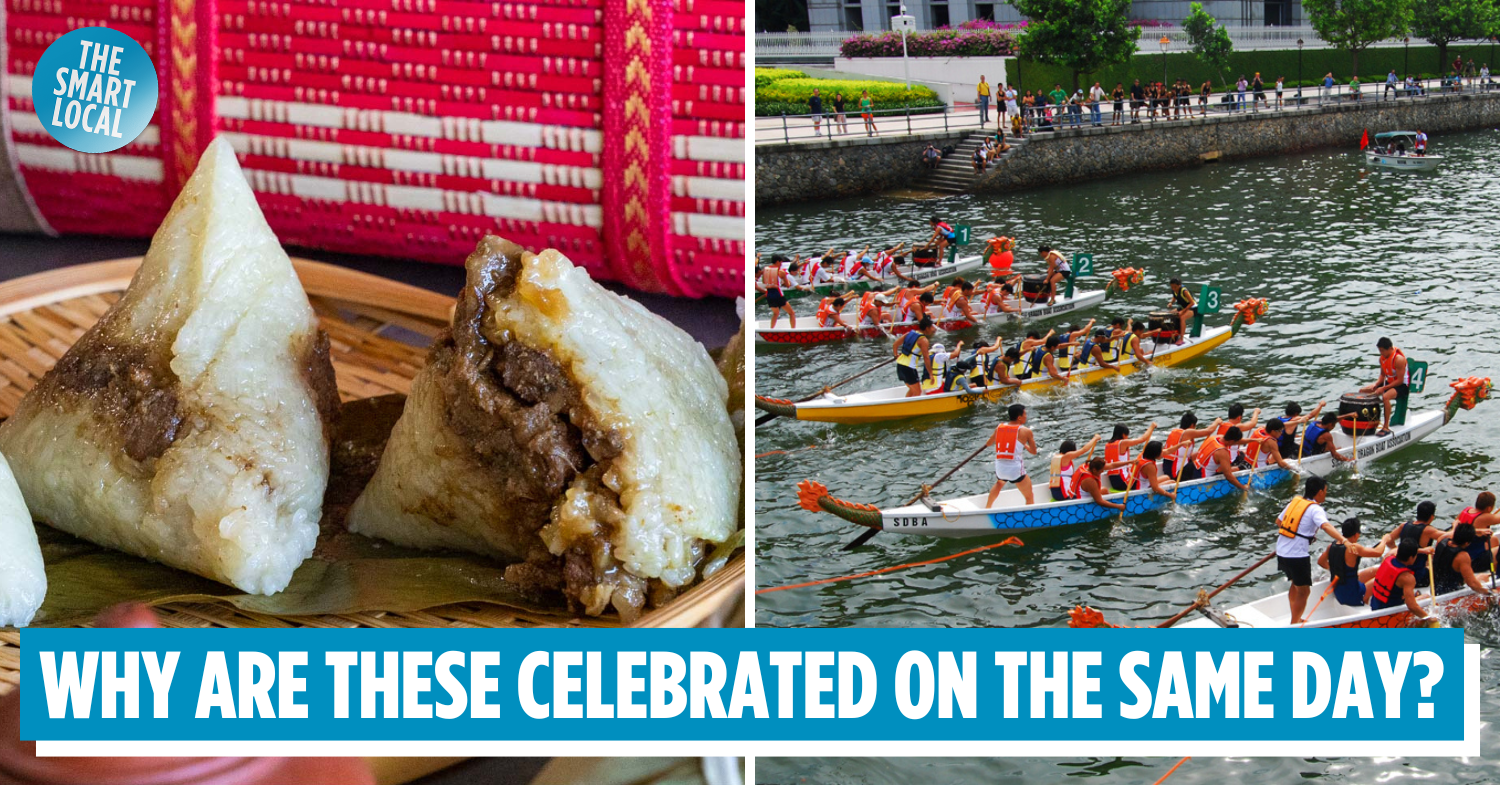Chinese festivals in Singapore
Growing up in Singapore, it’s normal to commemorate events like Chinese New Year and the Hungry Ghost Festival. But, like us, you may have some questions about common practices during these Chinese festivals in Singapore. Who are the empty chairs at getai shows for? Why do we eat mooncakes during the Mid-Autumn Festival?
If you’re too paiseh to ask, we’ve done the research so you don’t have to.
1. Chun Jie, 春节
Spring Festival AKA Lunar New Year
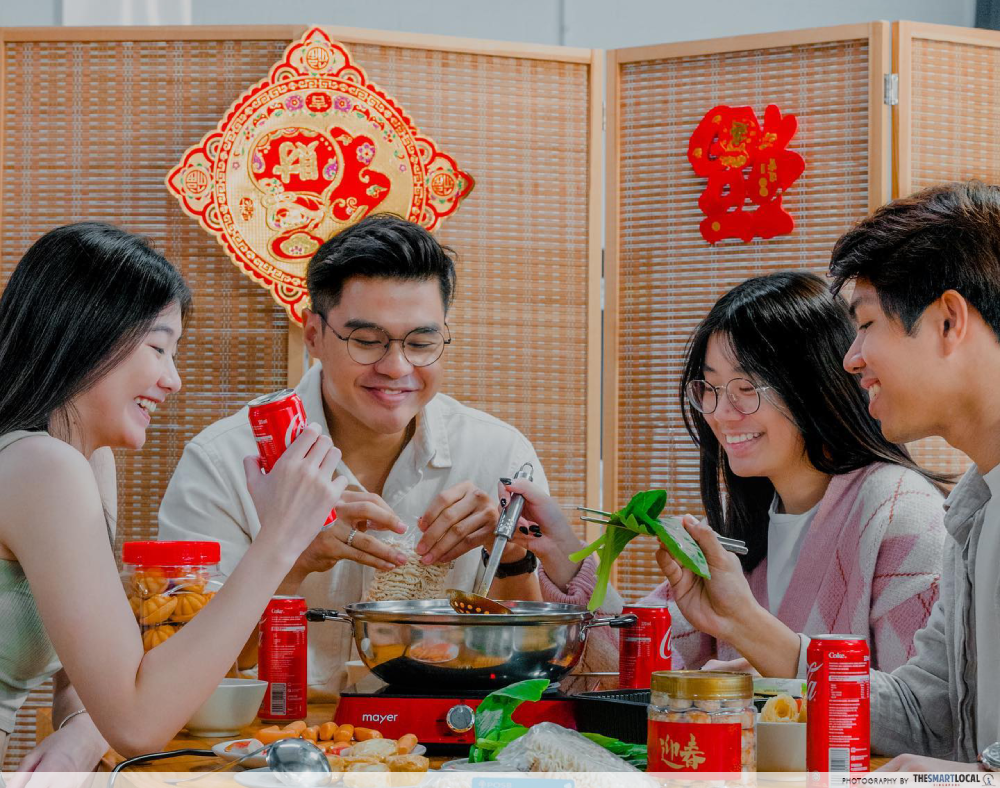
Chinese New Year (CNY) is a holiday we look forward to most in Singapore. Never-ending feasts, 2 days of PH, and boisterous lion dances everywhere you turn – what’s there not to love?
In China, the Lunar New Year is called Chun Jie. As one of the most important traditional Chinese festivals, celebrations typically last 15 days. Sadly, we don’t get to skip work the full 2 weeks in Singapore, but we still celebrate the entire period by going for reunion dinners, visiting family, and giving away red packets.
Being a significant part of the Chinese culture means that it also comes with a list of CNY dos and don’ts as well as Chinese New Year traditions. It’s important to familiarise yourself with them even if you’re not the pantang type to avoid getting a scolding from your elders.
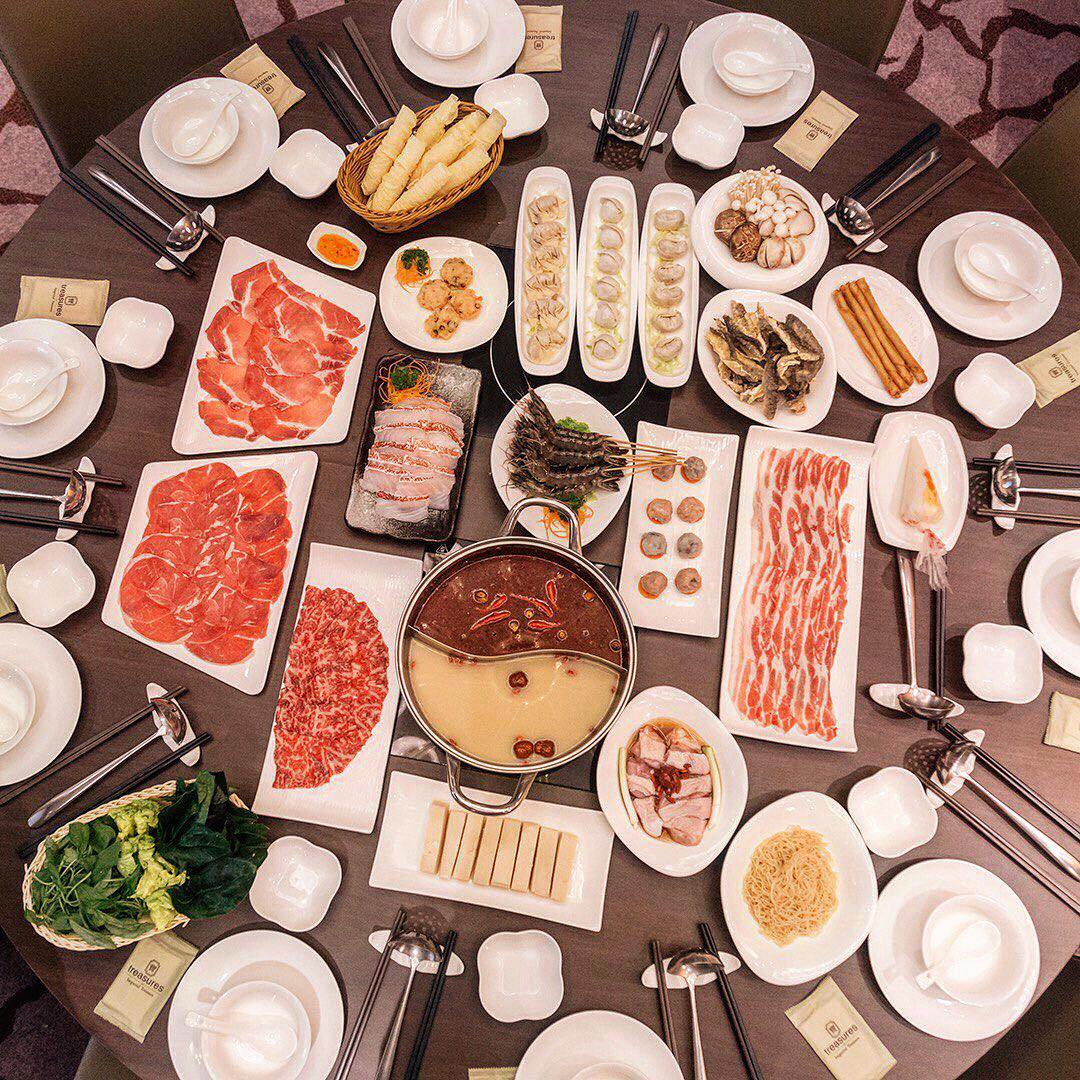
One of our favourite things about CNY.
Image credit: @imperialtreasuresg via Instagram
Besides the celebration of spring, Chun Jie emphasises family. That’s because family and filial piety play a big part in Chinese culture. Thus, it’s a custom for families to come together for a reunion dinner on the eve of CNY. Other than hotpots, a dish commonly seen on tables are yusheng platters for the yearly lohei.
If you didn’t know, yu is a word that stands for abundance and prosperity. This explains why we would lao yusheng – the tossing and mixing of the raw fish with the other ingredients in the salad – to symbolise an “abundance of success”. Traditionally, it’s done on the 7th day but nowadays, it’s not uncommon to be tossing yusheng during lunch even before CNY officially starts.
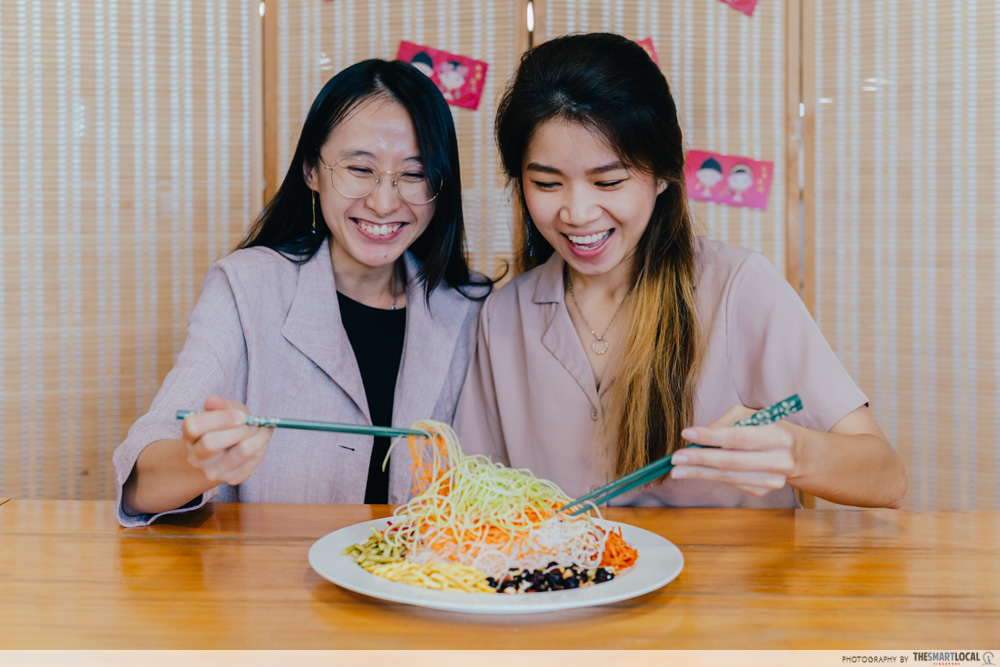
All eyes on the abalone and sashimi.
While you’re doing your yearly visiting, you’ll often see houses decorated with special Chinese characters. One peculiar thing you’d notice is that Singaporean households would also have the “fu” character pasted on their doors upside down. That’s intentional and not an oopsie.
Pasting the “fu” upside down conveys the message that luck and fortune are poured into the household. This is a play on the Chinese characters, 到 meaning “arrival” and 倒 meaning “upside down”.
Dates of celebration: 10th-24th February 2024
2. Qing Ming Jie, 清明节
All Souls’ Day
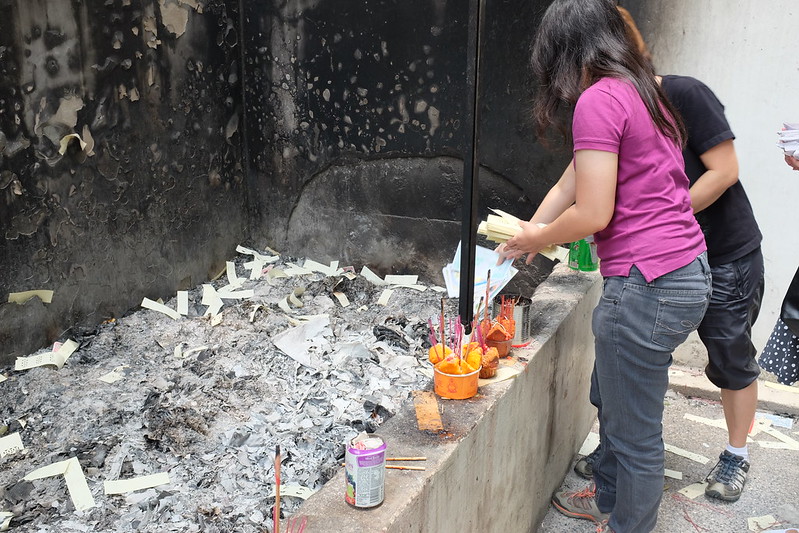
Image credit: Jnzl’s Photos via Flickr
Qing Ming Jie is that festival where your parents will drag you out of bed in the morning to pay respects to your ancestors. It takes place annually on the 106th day after the Winter Solstice as a means of commemorating your ancestors.
In the past, descendants would clean the tombstones of their ancestors during Qing Ming Jie. However, as more opt for cremation over burial in Singapore, the Chinese community here go to temples or columbariums where the urns or memorial tablets of deceased loved ones are placed.
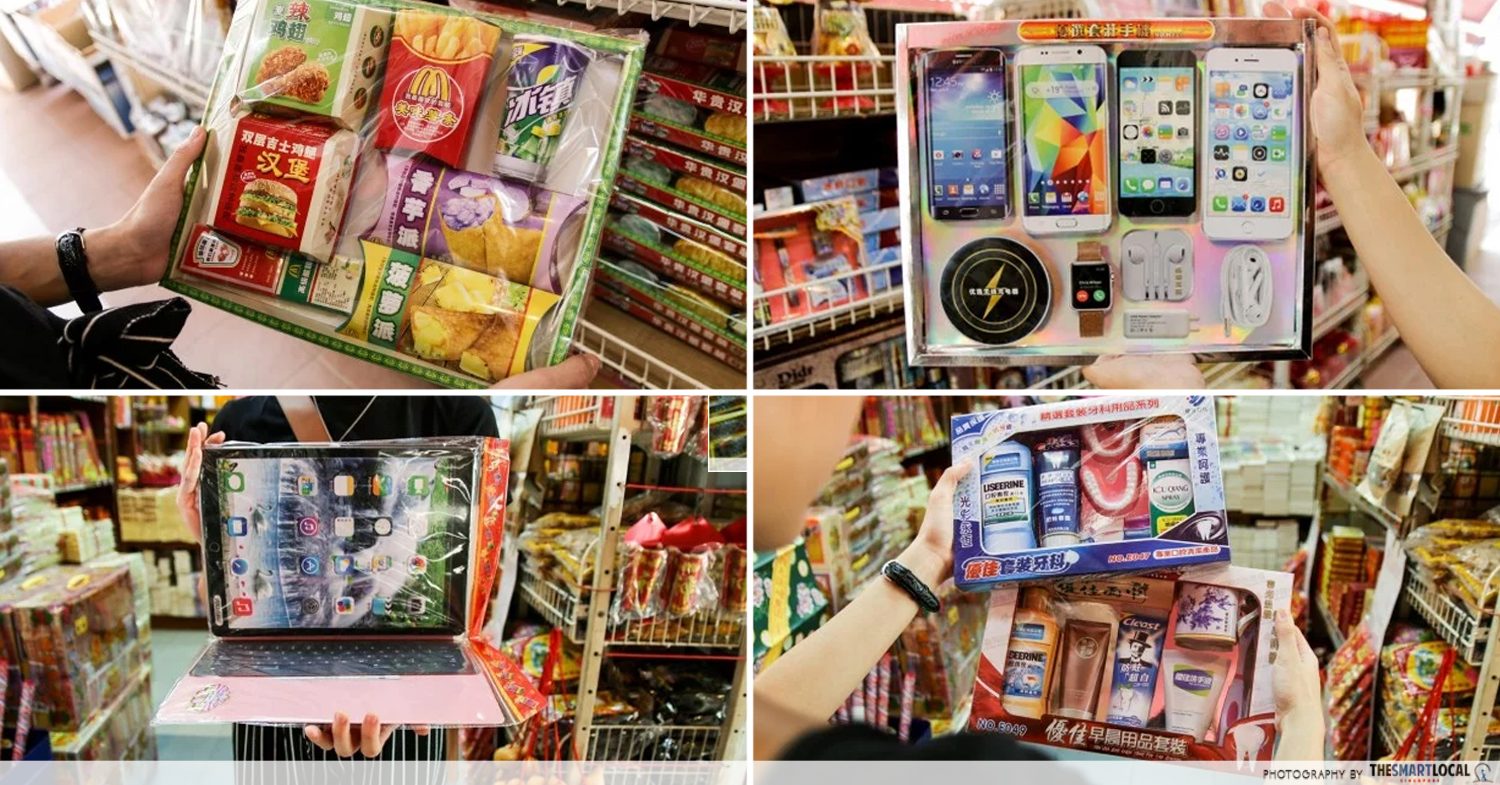
Something that you might notice in Singapore is the burning of paper offerings. It’s believed that burning paper offerings such as houses and clothes would provide the deceased with everything they need to live comfortably in the afterlife.
In the past, you’d only be able to buy paper offerings of necessities such as clothes, shoes, and hygiene kits featuring toothbrushes and toothpaste. Today, you’d find the latest “iPhones”, “MacBooks”, and even super fancy sports cars. Who knows? Ah Gong or Ah Ma might even be more tech-savvy than you. This brings us to the next point…
Dates of celebration: 4th April 2024
3. Zhong Yuan Jie, 中元节
Hungry Ghost Festival
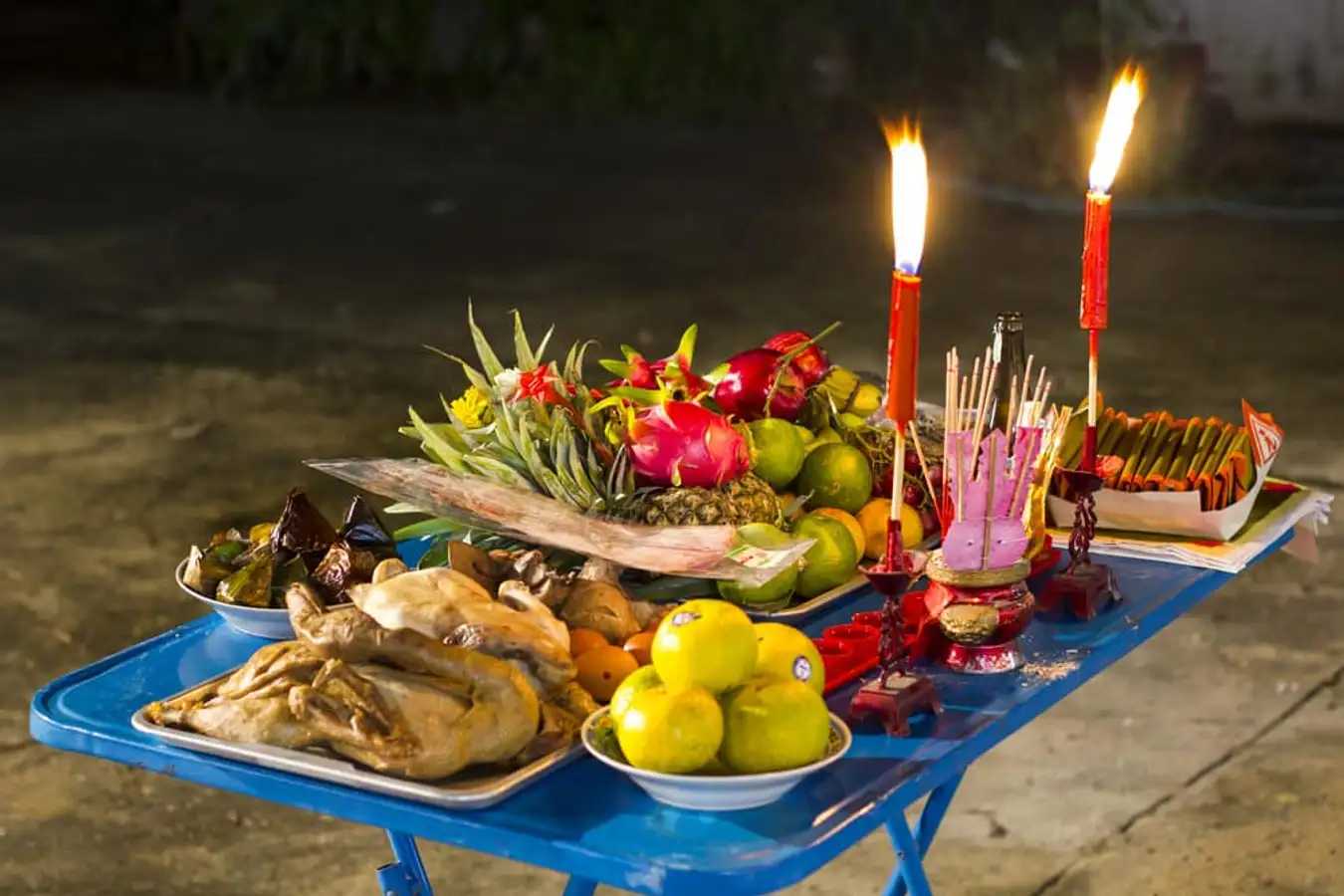
Image credit: Traveloka
Every Singaporean knows about the infamous Hungry Ghost Festival, commonly referred to as the 7th Month. According to Taoist beliefs, the gates of hell are open during the seventh month of the lunar calendar for ghosts and spirits to be released and freed. This explains the hantu stories often told during this period.
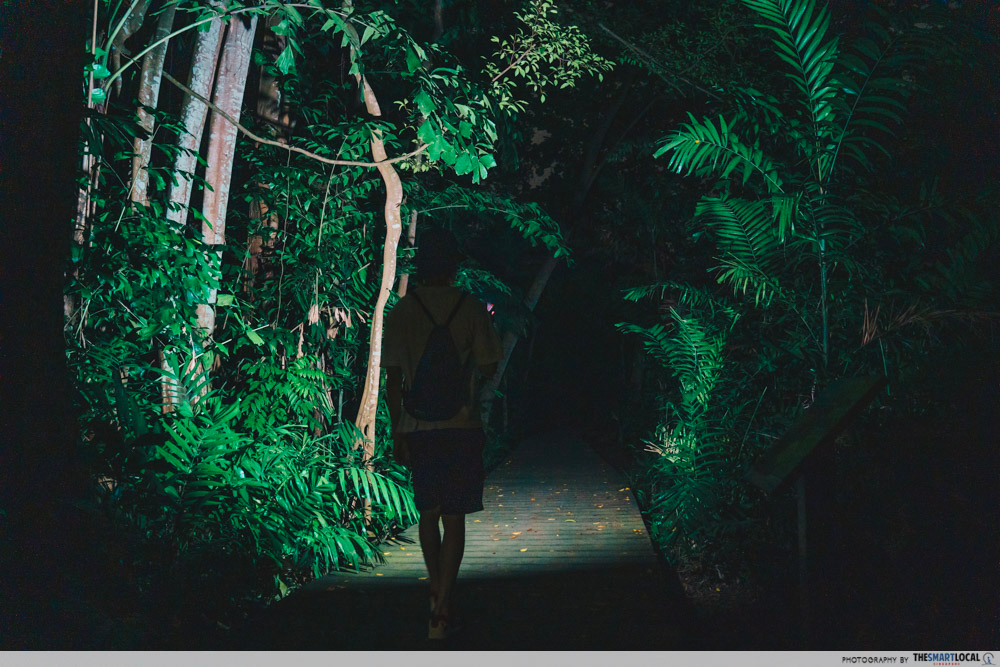
During this month, families will come together to burn paper offerings for their deceased loved ones. Don’t mistake offerings placed under trees on the side of pavements as litter. More often than not, they’re extra offerings made by believers for lost, wandering souls – those without a family to burn offerings for them – in order to appease them.
There’ll also be getai shows, dinners, and auctions of blessed items during this month to entertain these wandering souls. Profit collected from auctions of blessed items is used to either cover the cost of these expenses or as donations.
Make sure to not sit on seemingly empty chairs at getai shows, especially the first few rows of empty chairs that are normally reserved for spirits, or risk having a “friend” follow you back home that night.
Dates of celebration: 4th August to 3rd September 2024
4. Duan Wu Jie, 端午节
Dragon Boat Festival or Rice Dumpling Festival
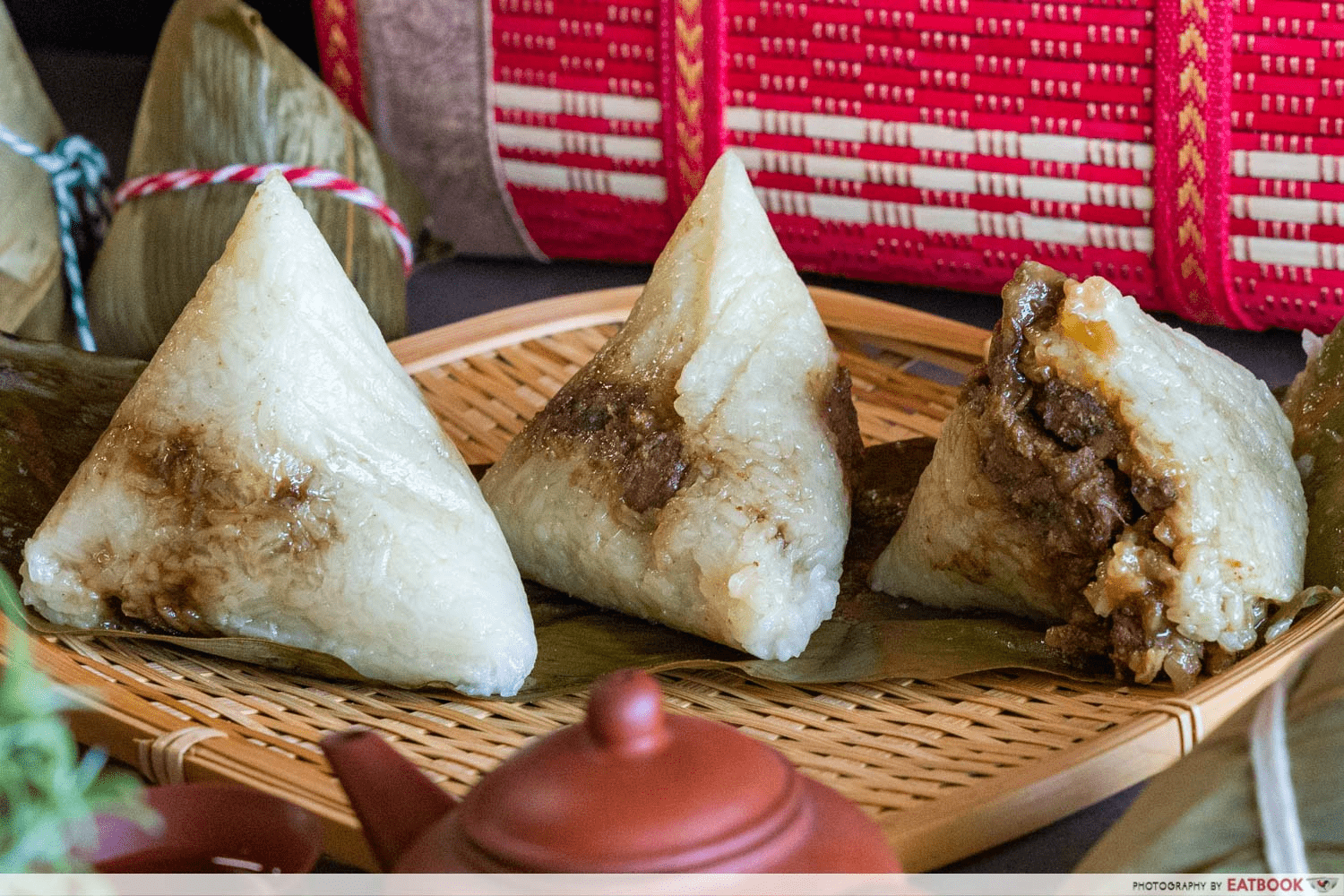
Image credit: Eatbook
Duan Wu Jie may be known as the Dragon Boat Festival. But it also has another name: Rice Dumpling Festival. That’s because eating one is a must-do, especially if you live in a Chinese household.
Though Duan Wu Jie seems like a light-hearted festival, the story behind it is pretty dark. Legend has it that during the Warring States Period, a prime minister of the Chinese state of Chu committed suicide by jumping into the Miluo River. This is because he was devastated when his beloved state was taken over by the Qin State.
In an attempt to distract the fish from feeding on the prime minister’s body, people threw rice dumplings into the river and made use of gongs and drums to scare them away. Many also went searching for his body in boats across the river.
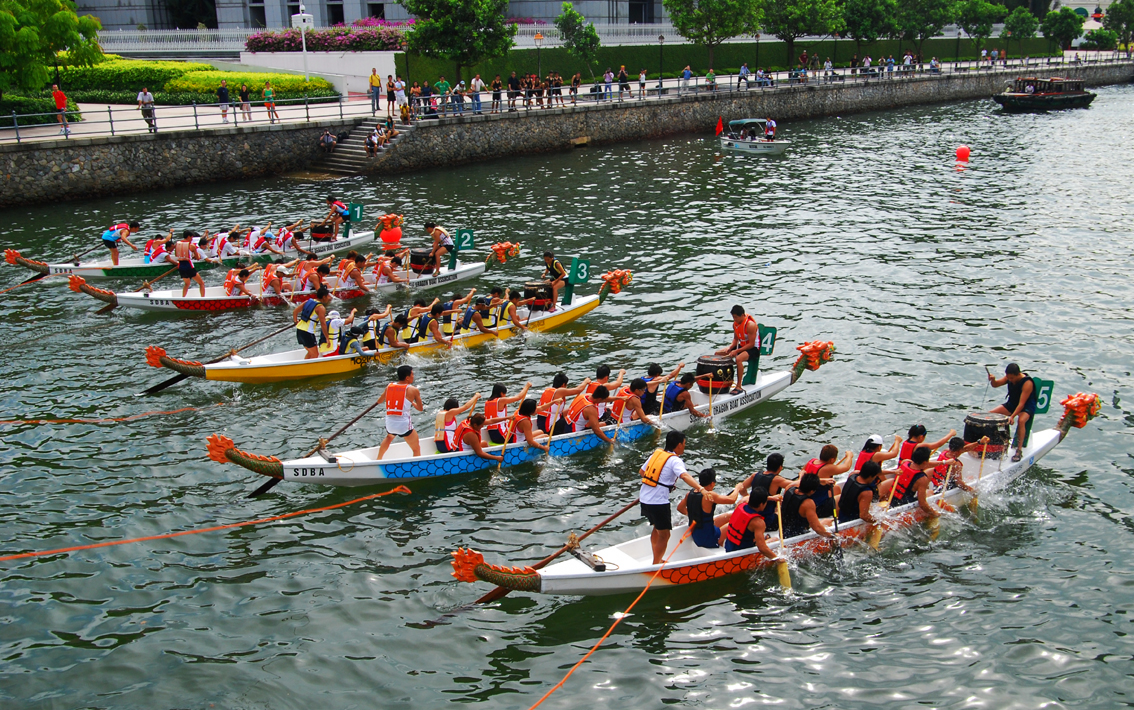
Image credit: William Cho via Wikimedia Commons
This is why we celebrate and commemorate Duan Wu Jie every year with rice dumplings and dragon boat races.
Nowadays, rice dumplings have become a delicacy in Singapore with various “modern versions” such as nyonya, kee chang, and black-eyed bean.
Date of celebration: 10th June 2024
5. Zhong Qiu Jie, 中秋节
Mid-Autumn Festival
Aside from the Mid-Autumn Festival, some of us might know Zhong Qiu Jie as the “Mooncake” or “Lantern” Festival.
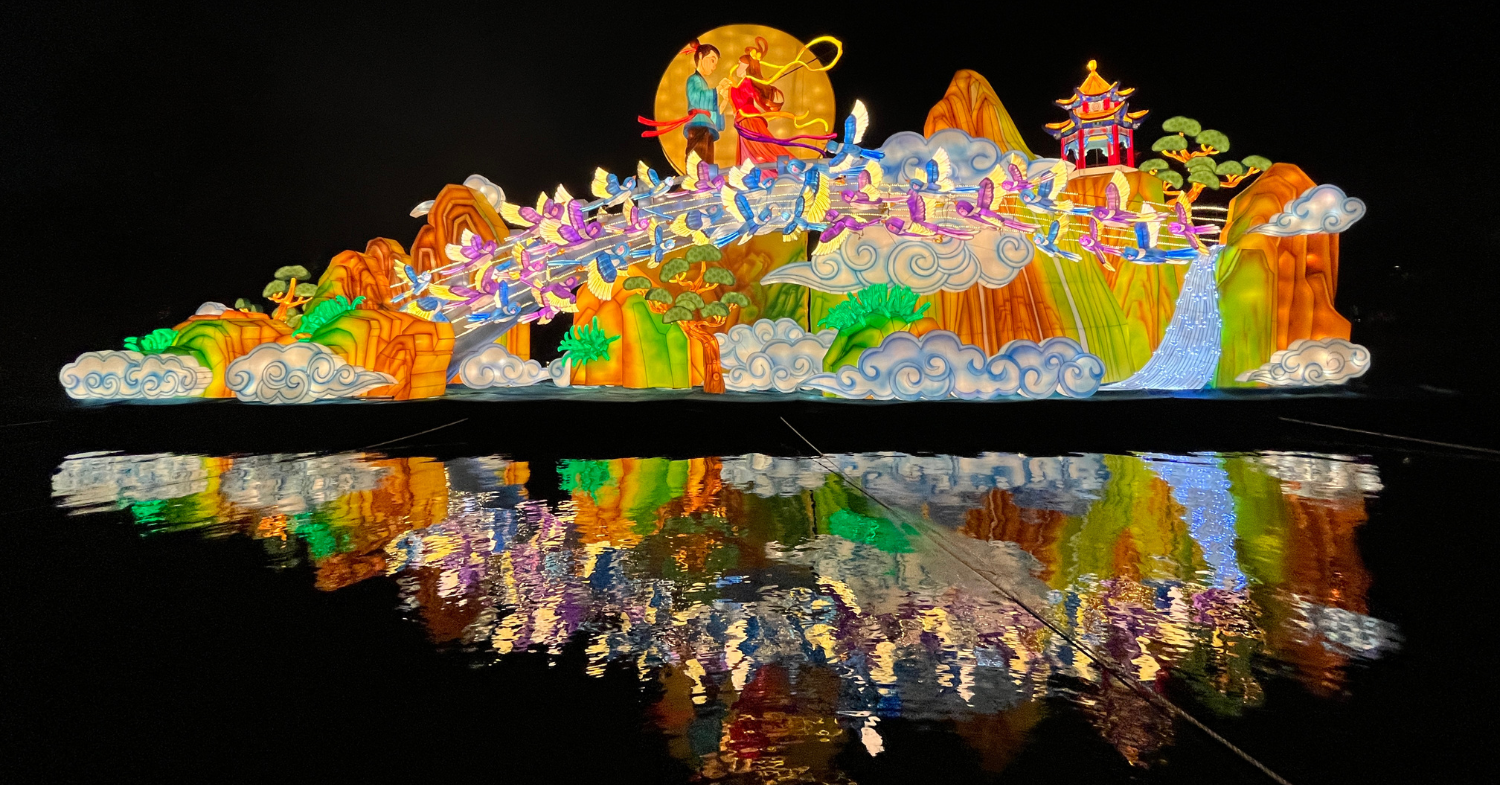
Image credit: Raewyn Koh
The festival is based on the legend of Chang-E, the moon goddess in Chinese mythology, and her husband Hou Yi. It was believed that 10 suns were shining down on earth, causing every plant to be burnt, resulting in famine. Hou Yi, well-known for his archery skills, saved the day by shooting down 9 of the suns.
After being seen and idolised as the hero who saved the world, Hou Yi started becoming a tyrant and even got an elixir that would allow him to live longer. Long story short, it was Chang-E who decided to take the elixir instead. She became immortal and started floating till she reached the moon. From then on, people started praying to Chang-E. One of the ways in which they did so was by carrying lanterns which served as a spiritual offering.
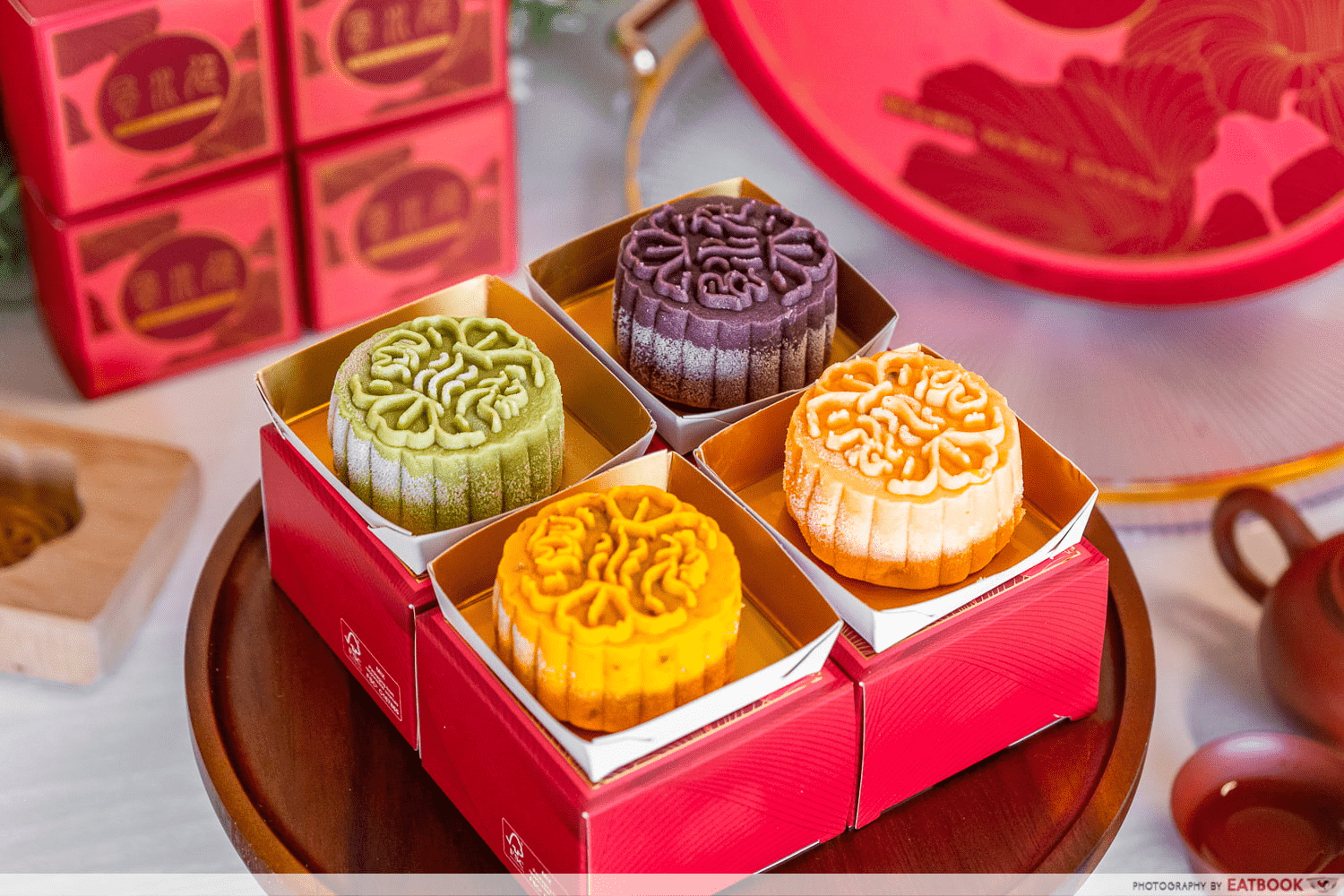
Image credit: Eatbook
Mooncakes, on the other hand, come from another story. It was believed that secret notes were hidden in mooncakes. These helped Zhu Yuan Zhang, a rebel leader, win the war against the Mongolians during the Yuan Dynasty.
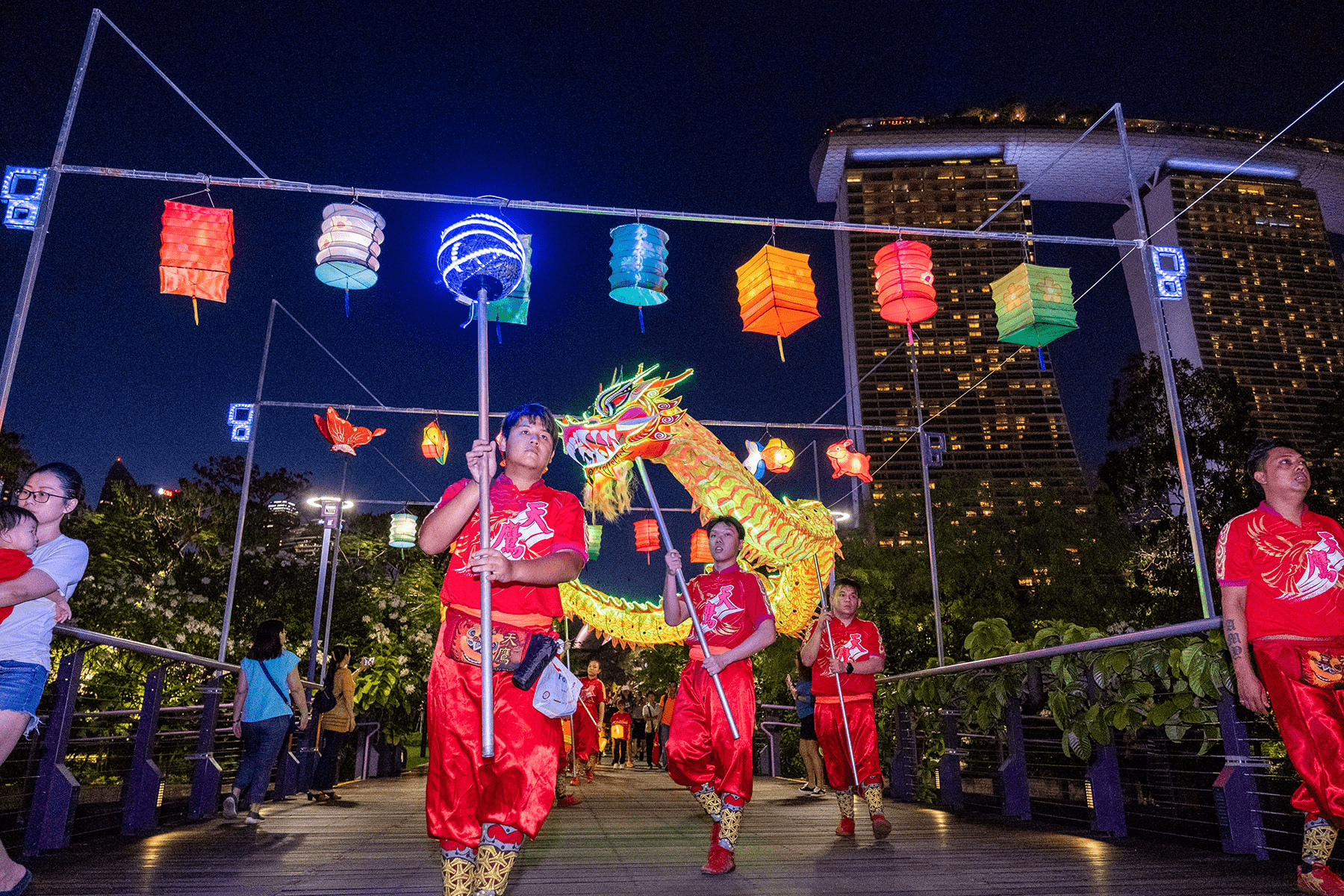
Image credit: Gardens by the Bay via Facebook
This is why most of our childhood memories of this festival involve lantern painting in school, mooncake tasting, and story-based dance performances.
You’ll also find that many malls in Singapore are decked in Mid-Autumn Festival decorations to commemorate this event. One of the most elaborate lantern displays is usually at Gardens by the Bay but you’ll find plenty of beautiful sets at Chinatown too.
Date of celebration: 17th September 2024
6. Dongzhi Festival, 冬至节
Winter Solstice Festival
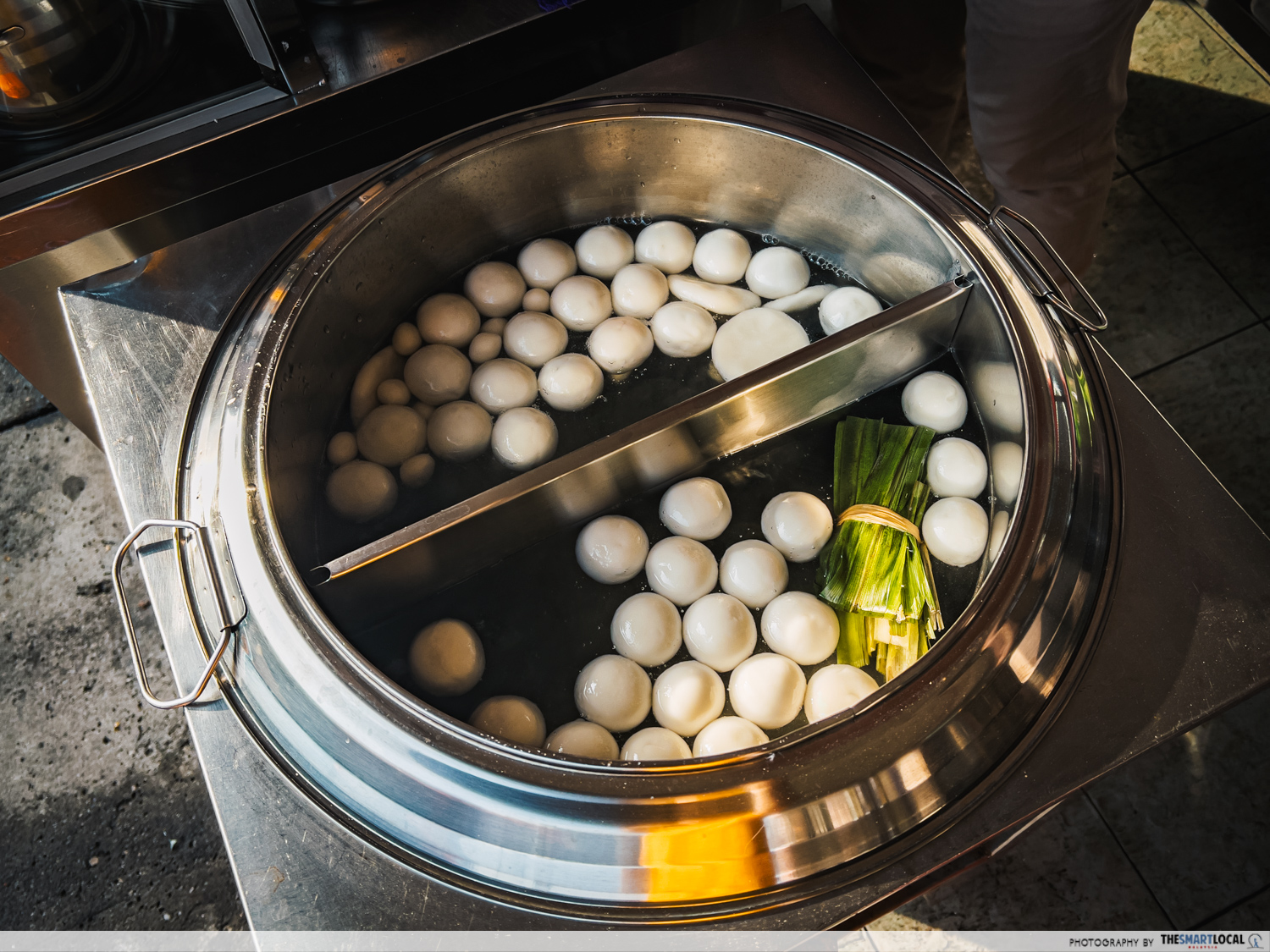
Alright, we’ll cut you some slack if you haven’t heard of this one. You might not know much about the Dongzhi Festival, but there’s a high chance you’ve already been celebrating it every year.
Dongzhi, or Winter Solstice Festival, is the last Chinese festival each year. It marks the end of the winter solstice that’s usually between 21st and 23rd December – 6 weeks before the start of the new lunar year. Dongzhi also marks the start of spring. To celebrate this, families would gather together to make and eat tang yuan – glutinous rice balls – which symbolise harmony and unity.
Something you may notice that Singapore does differently, is to often add pandan leaves to the soup. However, this is done just to add more fragrance and localise the taste; it doesn’t really have a deeper significance or meaning to it.
Date of celebration: 21st December 2024
7. Qi Qiao Jie, 乞巧节
Chinese “Valentine’s Day”
We’re all familiar with 14th February, Valentine’s Day. But the Cantonese community have their own version of it, Qi Qiao Jie, which falls on the 7th day of the 7th lunar month – usually between July and August.
While the festival was popularly celebrated in Singapore from the 1920s to 1960s, very few people even know of it today. With Qixi Fest 2024 happening this August, here’s a recap of what the festival is all about.
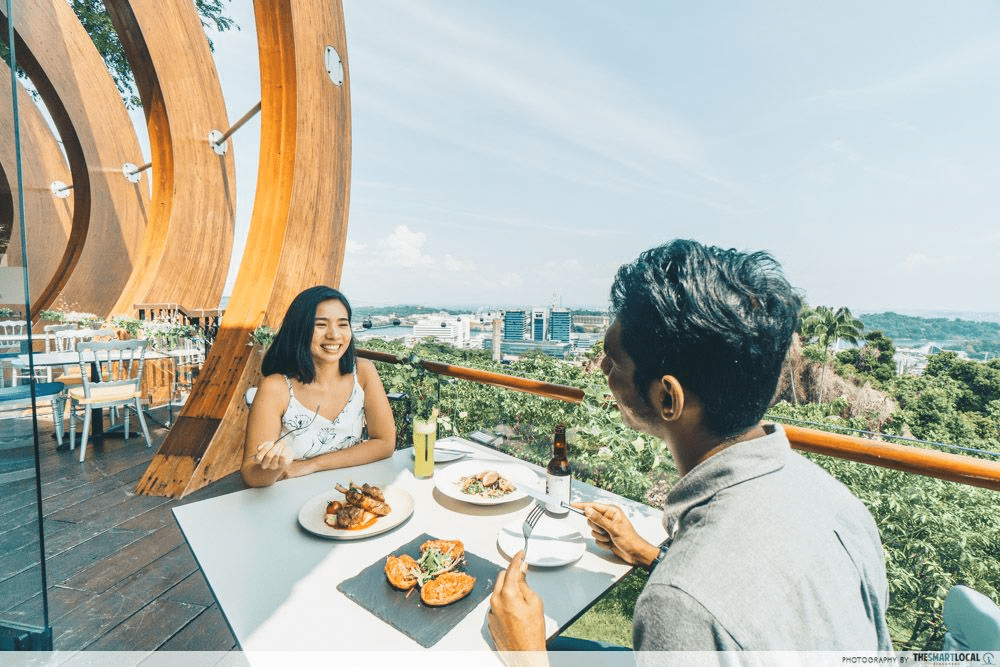
There are many renditions of the origins of this celebration, but here’s the most common version. Legend has it that a celestial maid for the heavenly empress in heaven came down to earth as a seamstress. That’s when she found and married the love of her life, a herdsman. Unfortunately, the heavenly empress eventually called her back to heaven.
Touched by their love story and the herdsman’s sincerity, the heavenly empress allowed the 2 lovebirds to meet once a year on the same day. On this night, thousands of magpies would come together to form a bridge the couple would use to meet each other.
Date of celebration: 10th August 2024
Don’t neglect these Chinese festivals in Singapore
You’re now armed with next-level knowledge of Chinese festivals in Singapore. Keep this article handy to impress even the most discerning of aunties at your next family reunion. And while you’re at it, we’d also recommend reading up our Hari Raya Haji FAQ and things to know about Deepavali.
Cover image adapted from: Eatbook, William Cho via Wikimedia Commons
